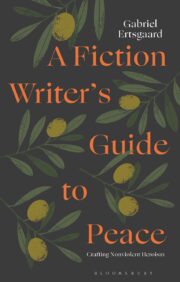Tighten Up Your Writing
by Juliet Kemp
As writers, we all have our own strengths – and our own shortcomings. At the start of your writing career, you’re working on everything all the time; as you improve, you can identify your strengths and lean into them. But to level up and develop your career, it’s vital (if tough!) to work on your weaknesses.
One weakness of many early career writers is overly loose writing. This isn’t about verboseness of style or voice. It’s about diction, choosing the correct words, not the ones that first come to mind. It’s also about how specific, or not, to be; about shaping your writing at the word, sentence, and paragraph level to convey precisely what you intend. Read on to discover how to identify your own loose writing problems and fix them while you write.
Words to watch out for
Some words are particularly easy to rely on in first drafts and to skip over when editing, but almost always feel weak to the reader. “Very,” ‘just,” “really,” “a little,” and “like” are all commonly overused by beginning writers. Reword the sentence to use a stronger word or otherwise make its point more robustly. Of course, sometimes, that “weak” word genuinely is the correct one, in which case read the sentence aloud once more for good luck and keep it. The key is to be certain that you’re not falling back on what feels normal (i.e., what you’re accustomed to writing) rather than what’s best. The excellent book The 10% Solution also mentions “that”, “of”, and “by” (with a handful of others) as words to watch out for–much of the time, the sentence is stronger without them.
Patting yourself on the back because you already avoid those? Bad luck: you probably have other overused favorites. Take a recent story or chapter and read through, looking for frequently-used words (both weak and strong). Underline the ones that jump out at you, and seek alternatives.
Clichés, weak words, and specifics
Clichés become over-used because they once did a good descriptive job. That, plus their being part of common daily parlance, makes them easy to reach for. If you’re writing a whole phrase as a single lump, stop, and check if you’ve fallen for someone else’s description rather than creating your own. Then take the time to create your own image crafted to fit your story.
Clichés become weak with overuse; other descriptions start out weak. Those curtains aren’t just red: they’re a particular shade of red, and the light has a specific effect as it falls across them. What about the rest of the room that Your Hero is cautiously edging into? What sort of door are they opening; what’s on the floor; what sort of table holds what sort of a lamp? Style plays a part here – some writers prefer sparser descriptions than others – but even a small number of specific details can strengthen your writing and world-building.
English contains a lot of available verbs, and the most general ones tend to be the weakest. Consider the descriptive value of those you’ve chosen (someone moving down a street might saunter, amble, walk, run, crawl, sprint, stride, wander…). You don’t want to sound like you’ve just discovered the mighty world of the Thesaurus, but if you’re jazzing a weak verb up with an adverb, try finding a better word. (This doesn’t apply to “said,” which suffices in almost all circumstances.)
Similarly, tighten up the specifics of a character’s gestures when inserting movement beats. It’s easy to reach for overused habits (shrugging, chewing fingernails) – instead, look for something more particular. Perhaps it’s the pad of a thumb this person chews at, or they scrape a tooth over a fingernail like an emery board. Watch people on the bus or in the shop, and collect the ways they move.
Consider, too, which other sensory specifics you are or are not using in your work. A good exercise is to take a printout of a scene or short story, grab five colored pens, and mark when you reference each sense. More sensory specifics will make your worlds more immersive. (I find this tough and am still working on it!) You can also consider a sixth sense: the bodily experience of emotion or sensation. To improve this, try a few five-minute writing challenges: describe a setting using all five senses, or describe how a particular emotion feels from the inside.
Identifying Your Specific Flaws
Fair warning: This sucks. However! You can’t get better if you don’t know what’s wrong. I’ve mentioned some common issues above, but you need to know your issues. If you have a reliable crit partner/crit group, ask them to point out three things (phrases, aspects of writing) they think you over, or under, do. Ask several people to see where the overlaps are. If everyone mentions the same three over-used words, they’re probably right.
You can also assess this yourself. Print out a couple of your stories, or novel chapters, ideally ones you haven’t worked on recently, and grab colored pens. Go through the pages slowly, with your best ‘editor’ brain on. Mark up any repeated phrases; repeated verbs; cliches; weak (or absent) descriptions; over-used mannerisms. Make a list of anything that crops up more than once, and be aware of it next time you sit down to write or edit. (Then do the whole thing again in six months, and I promise, you’ll see a whole bunch more different problems. This is why it sucks. Sorry about that.)
Incremental steps make for compound interest, which is to say, give it six months more than that, and you’ll be better twice over. Now, if you’ll excuse me, I have a bunch of glittery gel pens, and I’m off to take my own advice.
 Juliet Kemp is a queer, non-binary writer who lives in London. Their fantasy series The Marek Series is available from Elsewhen Press; the first book, “The Deep And Shining Dark” was a Locus Recommended Read. Their short fiction has appeared in venues including Uncanny, Analog, and Cossmass Infinities, and their story “Somewhere Else, Nowhere Else” was shortlisted for the WSFA Small Press Award 2020. In their free time, they knit, go bouldering, and get over-enthusiastic about fountain pens. They can be found at http://julietkemp.com, or as @julietk on Twitter.
Juliet Kemp is a queer, non-binary writer who lives in London. Their fantasy series The Marek Series is available from Elsewhen Press; the first book, “The Deep And Shining Dark” was a Locus Recommended Read. Their short fiction has appeared in venues including Uncanny, Analog, and Cossmass Infinities, and their story “Somewhere Else, Nowhere Else” was shortlisted for the WSFA Small Press Award 2020. In their free time, they knit, go bouldering, and get over-enthusiastic about fountain pens. They can be found at http://julietkemp.com, or as @julietk on Twitter.


